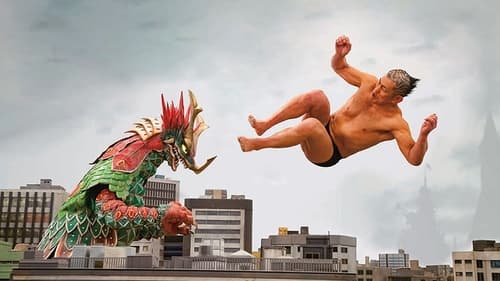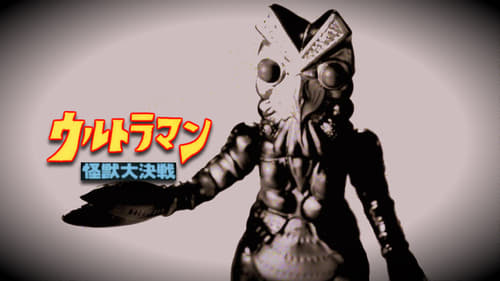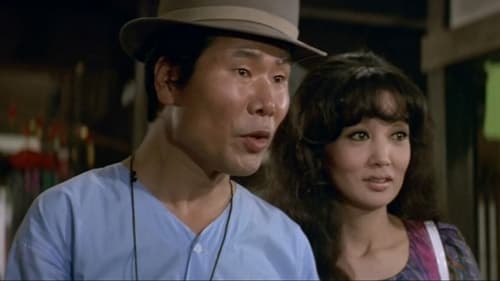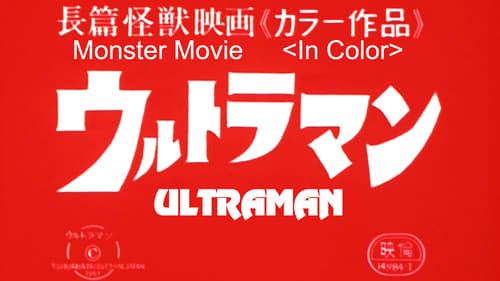Sandayuu Dokumamushi
Nacimiento : 1936-03-31, Sumiyoshi Ward, Osaka, Prefettura di Osaka, Giappone

大泉健三
Atsuko and Akira are a husband and wife duo with a daughter and a son. Atsuko is in charge of the retirement finances. She saves from money given to her by her husband and also earns money herself by working part-time. She stretches every yen by leading a frugal life. yet, expenses come up. These include their daughter's upcoming wedding and the funeral expenses of the husband's father. Then, and at exactly the worst time, the couple finds itself unemployed.

Dump truck driver (voice)
Un gato negro llamado Rudolf se separa de su amado dueño e, inesperadamente, se despierta en un camión que lo transporta hasta Tokio. Allí, conoce a Ippai-attena, un gato jefe que es temido por todos en la ciudad. Incapaz de regresar a su casa, Rudolf comienza una nueva vida junto a Ippai-attena, quien en realidad no es como aparenta.

Himself
When a giant monster attacks Japan, the country's only hope is a research assistant who's become monstrously big himself. But there might be a price.

The film is composed of stock footage from the original Ultraman television series with additional newly filmed content, and it served as an “epilogue” as Ultraman returns to Earth for one final battle.

Security Guard
During World War II, the Japanese military established a secret underground laboratory in Tokyo. Three Olympic-level athletes were selected to undergo a process that would turn them into Jinra-go, superhuman armored soldiers. By March 1945, one of the soldiers had been completely transformed into the half man/half machine ultimate soldier called Mikadroid. But American B-29s firebomb the city and, while the two super soldiers manage to escape, Mikadroid and the lab are apparently destroyed. 45 years pass, Tokyo is rebuilt, and old secrets are forgotten. The site is now home to a complex that includes the Discoclub Layla. The disco’s patrons dance late into the night, unaware that a faulty basement generator has reactivated Mikadroid and the cyborg now prowls the basement levels, killing anyone in its path...

A biographical dramatization about the production of the original Ultraman, the beloved classic special effects fantasy series from Eiji Tsuburaya.

Daisuke Arashi
A 1979 Japanese tokusatsu kaiju film produced by Tsuburaya Productions, consisting of re-edited material from the original television series Ultraman. Ultraman: The Great Decisive Battle was the 1st movie of the third Showa phase (Jissouji's Ultraman being first and Ultra Brothers vs. The Monster Army being second) and because of this Tsuburaya decided to make this a reunion of the last 12 Ultras (aside from Ultraman 80 which hadn't come out yet). Tsuburaya decided to give this a different tone than Jissouji's Ultraman, having more new scenes and appealing to the all-Ultra fan.

Dokushima
Nikkatsu Roman Porno

On the road again, Torajiro meets a kindred spirit in Lily, a lounge singer.

Daisuke Arashi
Mientras investigaba lo que aparentemente eran dos bolas brillantes que se perseguían una a otra, el oficial patrullero científico Hayata resulta muerto cuando uno de los ovnis choca accidentalmente con el Mini-VTOL que pilotaba. El ser que maneja el ovni, un gigantesco alien rojo y plateado procedente de la Tierra de la Luz en la galaxia Nebula M78, se siente responsable de la muerte. En compensación, decide entregar su fuerza vital al terrícola, devolviéndole así la vida. Al mismo tiempo le entrega un artilugio, llamado la Cápsula Beta, la cual, cuando es necesario, transforma en secreto a Hayata en un gigante alienígena que será conocido como Ultraman.

The recorded stage debut of the original Ultraman.

Tobiccho
Two outsiders start a relationship in a mining town.

Kokichi Nishida
Ultra-perky model likes single freedom but feels ryosai kenbo ("good wife, wise mother") pressure, exemplified by her bored-to-tears sister.

Though recognized worldwide almost exclusively for his colorful kaiju fare, director Ishirō Honda (Godzilla, Rodan, Mothra) was a natural humanist with a particular understanding of the relationship between people and their social environs. His debut fiction feature, The Blue Pearl (Aoi Shinju) – virtually unseen in the west until now – depicts the melodramatic, but keenly-observed interplay between a young man from Tokyo and two ama (pearl divers; literally “women of the sea”) in a superstitious coastal town. Though raised within the same tradition-bound crucible, the two women – Noe and Riu – are portrayed as diametric opposites; the former meek but affectionate, the latter strong-willed but jaded by a tryst with metropolitan life. Nonetheless, Honda provides equal weight to their desires and their ambitions to break free from the social mold imposed upon them from birth.









